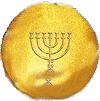|
 –– Photograph taken in April 2000 –– 3D structure of the Ten Commandments in 1983, and succeeded in reconstructing the famous two stone Tablets of the Law of the Torah of Moses from the Sinai, complete and precise to the millimeter. |
|
 –– Photograph taken in April 2000 –– 3D structure of the Ten Commandments in 1983, and succeeded in reconstructing the famous two stone Tablets of the Law of the Torah of Moses from the Sinai, complete and precise to the millimeter. |
 | is owned by Dr. Ewald (Ed) Metzler, M.C.L.. [Join Now] [Previous] [Next] [Next 5 Sites] [Ring Hub] [Random Site] [List Sites] |
| ||||||
|
Illustration concerning Dr. Ed Metzler's Fayoum Exodus
Route.
| |||||||||||||||

 This site
in The Jewish
WebRing Exchange is owned This site
in The Jewish
WebRing Exchange is ownedby Dr. Ewald (Ed) Metzler, M.C.L. Want to join the Ring? Get Info here... |
|---|
| [Join Now][Ring Hub][SkipPrev][Prev][Next][SkipNext][Random][Next5][ListSites] |
© All
rights reserved - Alle Rechte vorbehalten
by Dr. Ewald (Ed)
Metzler-Moziani.
